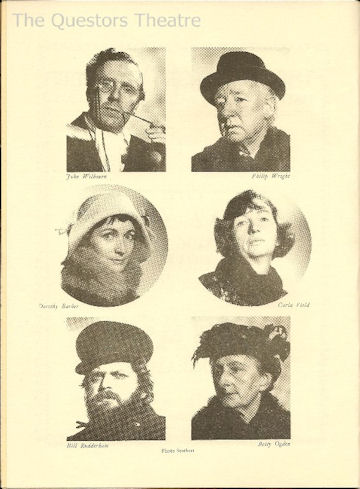Cast:
Dorothy Barber, Alan Chisholm, Roger de Toney, Robin Duval, Carla Field, Ben Keen, Betty Ogden, Tom Pritchard, Bill Rudderham, Peg Sweeney, John Wilbourn, Phillip Wright
Production Team:
Elizabeth Allen, Bob Anderson, Jean Baker, John Barber, Jeremy Bentham, Colin Binney, Gerry Blake, Neville Bradbury, Chris Branwell, Malle Butler, Hilda Collins, Mary Common, Beth Crowley, Neil Dobson, Caroline Finch, Babs Foster, Cathie Fraser, Claire Gibbons, Francis-Mark Harringotn, Leslie Harris, Charlotte Hooper, Lionelle Howard, Eric Kirby, Jane Longbottom, Peter Macnamara, Sue Meaker, Mark Moran, Terry Morris, Rosemary Parry-Jones, Ian Russell, John Stacey, Frank Wyse
|

